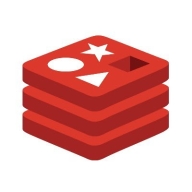

Cassandra and Redis are competing products in the database space. The data comparisons suggest Redis may hold the edge in scenarios where speed and simplicity are prioritized.
Features: Cassandra is praised for its linear scalability, fault tolerance, and ability to handle large amounts of data across many servers. Redis is valued for its outstanding speed, support for various data structures, and ease of integration.
Room for Improvement: Cassandra could improve by simplifying its complex setup process, enhancing its read speed, and providing better integration tools. Redis could benefit from offering better support for advanced querying, improving durability features, and expanding its scalability options for larger data sets.
Ease of Deployment and Customer Service: Cassandra's deployment can be more complex due to its distributed nature, requiring understanding of its configuration and architecture. Redis offers a simpler deployment process, contributing to quicker initial setup. Both offer customer support, though Redis's straightforwardness in deployment provides an advantage for rapid implementation.
Pricing and ROI: Cassandra generally involves higher initial setup costs due to its scalability features, which may lead to greater long-term ROI for large-scale operations. Redis typically offers lower upfront costs with faster ROI realization due to quicker deployment and operational simplicity, making it attractive for projects focused on cost efficiency and quick returns.


Cassandra is a distributed and scalable database management system used for real-time data processing.
It is highly valued for its ability to handle large amounts of data, scalability, high availability, fault tolerance, and flexible data model.
It is commonly used in finance, e-commerce, and social media industries.
Redis is a high-performance, scalable, and easy-to-use caching solution that improves application performance. It is also used for session management, real-time analytics, and as a message broker.
Redis's valuable features include its ability to handle large amounts of data quickly, its simplicity and straightforward setup process, and its support for various data structures, providing flexibility for different use cases.
We monitor all NoSQL Databases reviews to prevent fraudulent reviews and keep review quality high. We do not post reviews by company employees or direct competitors. We validate each review for authenticity via cross-reference with LinkedIn, and personal follow-up with the reviewer when necessary.